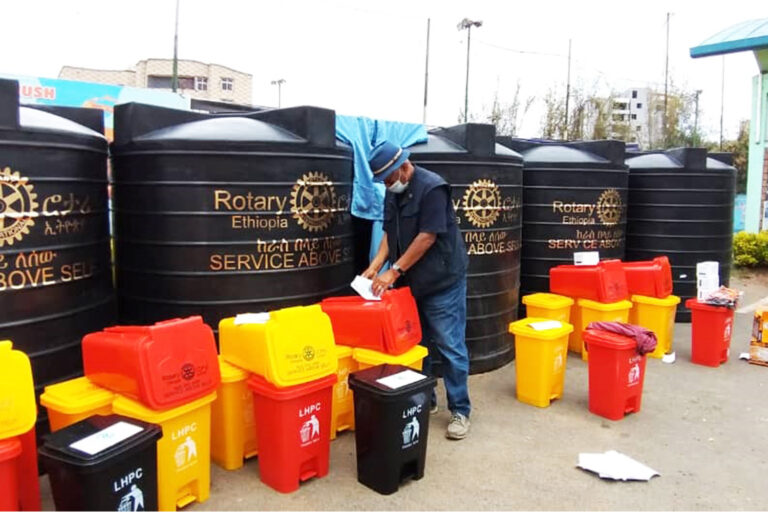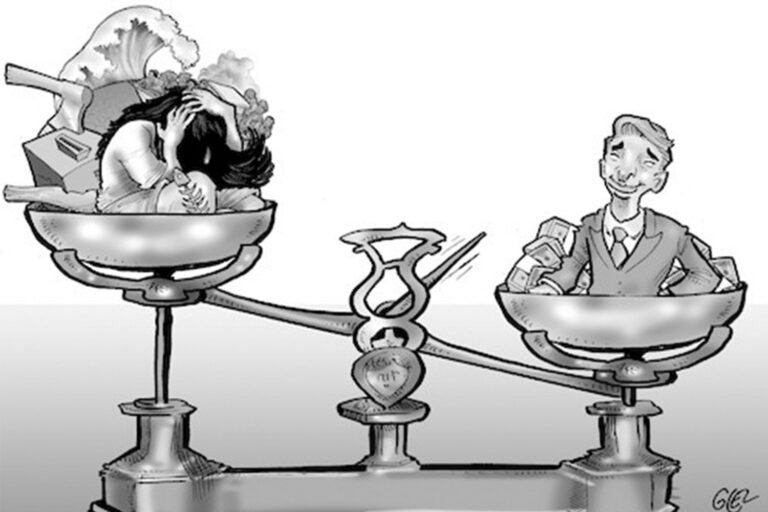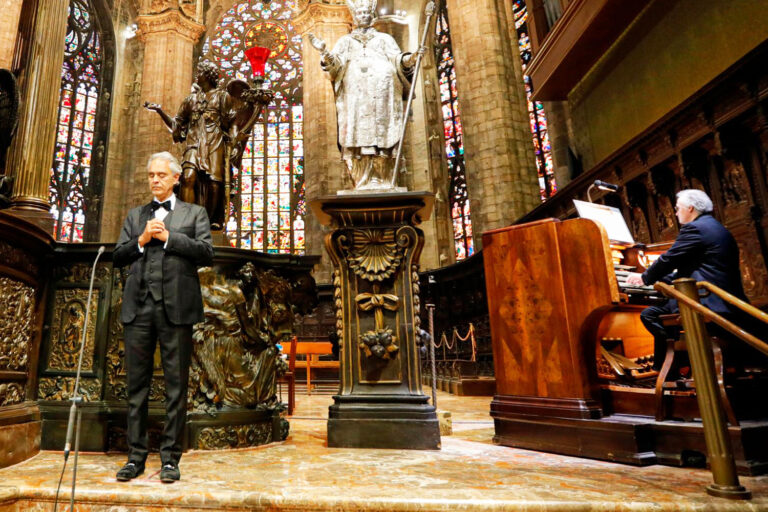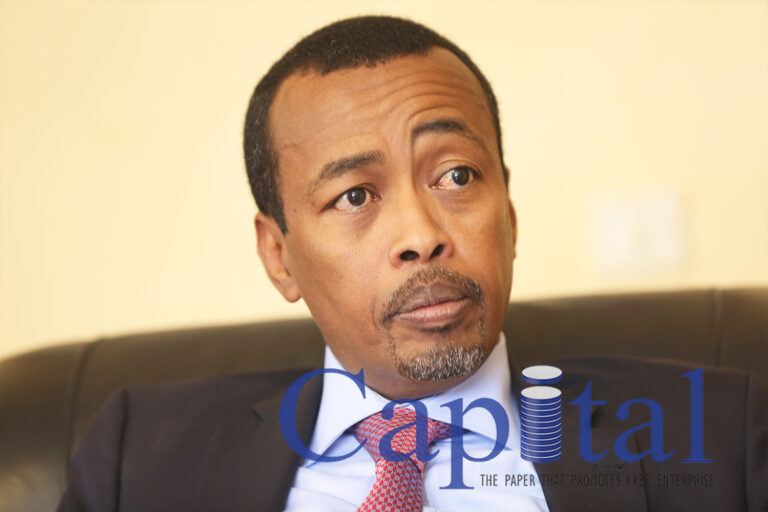Rotary in Ethiopia donated personal protective equipment and supplies to the Ministry of Health, as part of its continued support to combat COVID-19 pandemic.
The donated items of an estimated worth of over 427,000 birr include face shields for infection control, eye goggles for medical professionals, pedal operated closed lid dust bins, water tanks with a capacity to hold 3,000 liters, heavy duty cleaning gloves, surgical disposable face mask and reusable cotton face masks. 
Rotary in Ethiopia has also donated scrubs suits and tops to the medical professional who are at the forefront combating the COVID-19 pandemic at the Eka Kotebe General Hospital.
The enormity of the challenges that must be tackled to combat the COVID-19 is requiring better organization, effective designing of interventions and systemic approach to solutions, among others. “The need for coordination with the target beneficiaries and national and global endeavors is of paramount importance to make deliveries relevant, quick, impactful and sustainable,” Rotary Ethiopia stated in a press release.
“Rotary in Ethiopia will continue to support Ethiopia’s efforts to combat this pandemic as long as it takes. These endeavors are also part of Rotary’s long-standing commitment and dedication to serve our communities,” the statement further says.
Rotary is a non-political, non-religious and not-for-profit worldwide network of business and professional leaders that provides humanitarian services, encourages high ethical standards in all vocations and promotes goodwill and peace in the world under its motto of “Service above self”. It was established in 1905 and now operates in more than 220 countries organized in above 35,000 clubs with more than 1.2 million Rotarian members across the globe. 
Rotary in Ethiopia has been serving the communities since 1955. Currently there are 21 Rotary clubs in the country. These clubs have daughter Rotaract clubs with members between the age of 18 – 30 and interact clubs with members between ages of 12 to 18. At the moment, there are 15 Rotaract clubs and 20 Interact clubs in the country. With nearly 2000 members across these groups of volunteers, the Rotary movement is expanding fast all over the country with new clubs establishing such as the Rotary Club of Goba, in Bale zone, the Rotary club of Qarsa in Arsi Zone and the Rotary club of Asella in Arsi zone of the Oromia regional state and the Rotary Club of Lalibela in the Amhara regional state, all chartered within the last four months. More clubs are under formation in all the regions of the country with lofty plans of expanding volunteerism, good will and high ethical standards among the youth and adults all over the country.
Rotary Ethiopia donates protective equipment and supplies to Ministry of Health
The structural threat of poverty and inequality to the Arab Region
External powers looking at the Middle East tend to focus on issues of high politics. That focus may blind them to the local, regional, and global factors which drive the ongoing political and sectarian tensions and armed conflicts across parts of the Arab region in the Middle East. Lurking beneath diplomatic manoeuvring is a dangerous pattern of new and deep structural threats that have converged in a cycle of poverty, inequality and vulnerability that seems likely to keep the region mired in stress and conflict for decades to come. These threats exacerbate existing antagonisms and armed clashes across the region, heighten social tensions, and ultimately lead to the fragmentation of both individual countries and the wider Arab region that had enjoyed some minimal commonalities and integrity in the past century.
These threats include, most notably, chronic and growing poverty, a very high rate of labor informality, increased vulnerability among middle income families, continued high population growth rates that outstrip economic growth, and expanding disparities and inequalities in almost every sector of life and society. As these combine with other political and material grievances that are common among majorities of citizens such as lack of water, affordable food, and decent housing, poor political participation and accountability, among others, they erode citizen trust in government institutions and lead to greater alienation among families that suffer two major pains: they feel they are not treated equitably, and are powerless to do anything about their condition.
Rami Khouri of American University of Beirut stressed that Arab governments and their external sponsors tend to prioritize the wrong threats. Most Arab governments continue to introduce superficial reforms in pivotal sectors such as education, employment, and anti-corruption, but their efforts mostly remain unsuccessful or limited in their impact. Simultaneously, the broader Arab trend in most countries since the end of the Cold War around 1990 sees steadily increasing pauperisation, vulnerability, perceived injustice and helplessness, and disparities. The extent, causes, and consequences of this troubling trend are crystal clear, yet they do not seem to elicit any serious response from Arab governments. The Arab region and many individual countries are literally being ripped apart by the consequences of decades of incompetent, autocratic governance, combined with continuing foreign military interventions and the impacts of the century-old Arab- Israeli conflict.
According to Rami Khouri, the symptoms of the systemic crisis started to appear several decades ago. They could have been alleviated much more easily at the outset had governments been more effective in recognizing and tackling the issues that plagued their citizens, especially corruption, insufficient decent jobs, state cronyism, and declining educational standards. Rather than dealing with these early signs of serious mass internal dysfunction, regimes focused on military security and internal repression. The outcome was to exacerbate rather than solve the threats to social cohesion and national well-being, which in turn contributed to the brisk emigration of educated youth, the collapse of political parties, the rise of sectarian groups and militias, and steady expansion in adherents to both nonviolent and militant Islamist movements.
Khalid Abu-Ismail, in his 2018 study entitled “Poverty and Vulnerability in Arab States”, stated that the actual levels of poverty and vulnerability in the Arab region are higher than previously thought, with some two-thirds of citizens falling into the categories of poor or vulnerable. The realities of declining family wellbeing were disguised by prevailing poverty measures based on daily expenditures, which did not accurately capture two critical trends: high levels of poverty, and rising levels of vulnerability among families that used to be counted among the middle class or middle-income category, but have gradually fallen into the poor or vulnerable categories.
Significant research in recent years by economists at UNDP, the United Nations Economic and Social Commission for Western Asia (ESCWA), the World Bank, and other institutions has used the Multi-Dimensional Poverty (MDP) measure to gauge poverty and vulnerability more accurately than the previous reliance on money- metric measures such as $1.25 or $1.90 expenditures per day. The Multi-Dimensional Poverty figures indicate poverty rates as much as four times higher than previously assumed. If this level of 66 percent poor/vulnerable holds for the entire Arab world, it means that some 250 million people may be poor or vulnerable, out of a total Arab population of 400 million.
The middle class in non-oil-producing states has shrunk from 45 percent to 33 percent of the population, according to ESCWA economists who have analyzed this issue. They see many middle income families sliding into vulnerability, and vulnerable families in turn falling into poverty. Khalid Abu-Ismail noted that the drivers of this increase in poverty and vulnerability have persisted or worsened since the 2010-11 Arab uprisings. They are likely to drive further families into poverty and vulnerability for years to come, given the current regional realities.
Khalid Abu-Ismail further argued that this trend seems to be directly associated with the steady recent decline in the quality of state-managed basic social services, mainly outside the Gulf region, including health care, education, water, electricity, transport, and social safety nets. The number of Arabs requiring humanitarian assistance to stay alive and minimally healthy, according to ESCWA calculations, is 60 million people in seven crisis states. They include many of the 30 million people who have been displaced in the Arab region in recent years.
The 2019 MENA Economic Monitor report indicated that once families fall into poverty, they are likely to remain there for generations to come. The steady, large-scale growth in new jobs in industrial, tourism, agriculture, and service sectors that absorbed new labor market entrants in the half-century after the 1950s has disappeared. IMF and other projections say the Arab region must create 60-100 million jobs by 2030, and 27 million jobs in the next five years, to reduce unemployment significantly. This is clearly a task that is well beyond the capabilities of the current Arab state system and its private sectors.
This suggests that informal labor will remain dominant for years to come in most Arab lands; this means we should expect continued and growing poverty and vulnerability, due to the erratic and low pay and the lack of protections that informal workers suffer. Informal-labor-linked poverty is also a consequence of poor education outcomes, with some universal test scores indicating that as many as half the students in primary and secondary school across the Arab region are not learning, and many will drop out before completing primary or secondary education.
to be continued next week…
FROM THE DUOMO IN MILAN ANDREA BOCELLI PRESENTS ‘MUSIC FOR HOPE’ STREAMED WORLDWIDE EXCLUSIVELY ON YOUTUBE
On an Easter Sunday like no other, Italian tenor Andrea Bocelli gave the most extraordinary performance of his life. There was no audience present in Milan’s iconic Duomo, but across the globe people tuned in to witness his emotional performance, streamed live via YouTube, uniting the world at a time when many are apart, being isolated at home.
This unique performance, offering an uplifting message of love, healing and hope through music, took place at the historic Duomo, the cathedral of Milan, Italy, by invitation of the City and of the cathedral, and thanks to the hospitality of the Archpriest and the Veneranda Fabbrica del Duomo.
Bocelli says of the event: “I will cherish the emotion of this unprecedented and profound experience, of this Holy Easter which this emergency has made painful, but at the same time even more fruitful, one that will stay among my dearest memories of all time. That feeling of being at the same time alone – as we all are in the presence of the Most High – yet of expressing the voice of the prayer of millions of voices, has deeply impressed and moved me. Love is a gift. Making it flow is the primary purpose of life itself. And I find myself once again indebted to life. My gratitude goes to all those who made this possible, the City of Milan and the Duomo, and to all those who accepted the invitation and joined in a planetary embrace, gathering that blessing from Heaven that gives us courage, trust, optimism, in the certainty of our faith.”
Accompanied only by the cathedral organist, Emanuele Vianelli, Bocelli sung a carefully chosen selection of pieces, specially arranged for solo voice and organ for the occasion. This included the beloved Ave Maria setting by Bach/Gounod and Amazing Grace, opening completely unaccompanied – an incredibly poignant moment, in the still of a city under continued lockdown, alongside a stirring programme of sacred music for one of the holiest days of the year. The recording will be released digitally on audio streaming services within hours.
The event was promoted by the City of Milan and the Veneranda Fabbrica del Duomo, produced by Sugar Music and Universal Music Group, thanks to the generous contribution of YouTube. Andrea Bocelli’s participation was entirely pro-bono (in collaboration with Almud and Maverick Management).
Bocelli, with the Foundation that carries his name, is currently involved in an emergency COVID-19 campaign. The Andrea Bocelli Foundation (ABF) has started a fundraiser to help hospitals purchase all the instruments and equipment necessary to protect their medical staff.
Concert from empty Milan cathedral is largest classical live stream in YouTube history
Andrea Bocelli has made history – his Milan cathedral concert is the biggest ever classical live stream, with more than 28 million views from across the globe in its first 24 hours.
At a time when we all need music to give hope and comfort, Andrea Bocelli gave us a moment on Easter Sunday that seemed to rise above everything else happening in the world.
The great Italian tenor live-streamed a concert from an empty Duomo cathedral in Milan, accompanied by the cathedral’s organist Emanuele Vianelli.
On Sunday evening, the event trended at number one on YouTube, as millions came together to share the music. There were 2.8 million peak concurrent viewers, making it one of the biggest musical live stream performances of all-time and the largest simultaneous audience for a classical live stream in YouTube history.
After 24 hours, 28 million people had watched the concert.
Tackling COVID in 19 Djibouti
The government of Djibouti closed its land, air and sea borders on March 18, 2020 following the rapid spread of the corona virus in Africa. Djibouti is one of the first to close its boarders and announce general lockdown except for some essential administrative and port related services sanctioned by the government.
Djibouti Ambassador to Ethiopia Mohamed Idriss Farah talked to Capital about the situation in Djibouti and what his government is doing to tackle the pandemic as well as what strategies are put in place to ensure the smooth transfer of goods between the two countries in this uncertain times. Excerpts;
Capital: How is Djibouti coping with COVID 19 pandemic? What are the challenges and the response from your government?
Amb. Mohamed Idriss Farah: The government of Djibouti quickly made an important decision to close its land, air and sea borders on March 18, 2020 followed by general containment of the population in order to fight this pandemic. Our strategy also consists in carrying out a nationwide screening of the population in order to quickly detect those infected by COVID 19 and immediately take care of them to avoid loss of human life. This is the reason why several thousand Djiboutians and foreigners living in Djibouti are screened and will continue to be screened in the days and weeks to come.
Capital: Your country is repatriating Ethiopian migrants back, what are the reasons and why at this time?
Mohamed Idriss: The Ethiopian migrants living in Djibouti are migrants who came wanting to go to Yemen, and because of the closure of the maritime borders of the Arab countries they are stranded in Djibouti. They wish to return home to Ethiopia, and this issue of voluntary return of Ethiopians is directly managed by the International Organization for Migration (IOM) and they are therefore awaiting repatriation in complete agreement with the Ethiopian authorities.
Indeed, despite the closure of land and sea borders, migrants have never stopped coming to Djibouti in the hope of reaching the other side of the Red Sea. Some of them want to return to Ethiopia and others want to stay in Djibouti.
Capital: How is the Port of Djibouti operating in these difficult times?
Mohamed Idriss: The activities of the ports of Djibouti operate normally and practically at the same rate as before the pandemic. The number of trucks entering and leaving our ports is the same as before the crisis. This demonstrates the total commitment of Djiboutian ports actors, in the remarkable work done despite the risks associated with COVID 19, to ensure that Ethiopia does not have any repercussions on its import both in terms of oil as well as any goods dispatched to this friendly country.
Capital: What are the preparations undertaken at the port of Djibouti to prevent the pandemics?
Mohamed Idriss: The Djibouti Ports and Free Zones Authority (DPFZA) has implemented a number of health protections to operate normally, that is the implementation of the measures recommended by the World Health Organization (WHO) so as to limit as much as possible the risk of COVID 19 spreading.
Furthermore, the activities of the ports and free zones of Djibouti were not impacted by the general lock down adopted by the government, in particular to ensure that Ethiopia is not to be affected in any way by our quest to protect our population from COVID 19.
Capital: Your country recently reported the first corona virus death and the number of positive tests soars rapidly. What is the worst case scenario that will inflict on your economy.
Mohamed Idriss: The impact on the Djiboutian economy will be real just as the whole world’s economy. This health crisis will unfortunately be followed by an unprecedented financial and economic crisis for the world economy but especially for the economies of developing countries, and in particular the African continent.
Capital: Recently there were reports that Djibouti banned a food cargo bound to Ethiopia. What really happened?
Mohamed Idriss: It is completely false to claim that Djibouti has stopped the supply of food to Ethiopia. This information is slanderous and unacceptable for our country because it is disseminated in social networks by malicious people. There has never been any question in Djibouti of blocking any goods belonging to and going to Ethiopia.
I also emphasize that despite the general lockdown of the population and the interruption of all commercial and economic activity, the President of the Republic Ismael Omar Guelleh has given clear instructions to the government that port activities and trans-shipment of goods are in no way affected, in particular to ensure that Ethiopia’s supplies are delivered on time. Over 1,200 Ethiopian truckers cross our borders every day to gain access to the various ports of Djibouti to supply Ethiopia despite this severe pandemic of the corona virus. This demonstrates, if need be, the total commitment of the Djiboutian authorities to satisfy the Ethiopian market.
In addition, a joint committee co-chaired by the Ethiopian Deputy Minister of Transport and the President of Djibouti Ports and Free Zones Authority is set up within the framework of COVID 19 to ensure that there is no supply delivery interruption on the one hand, but also to limit the risk of the pandemic spreading.
Meanwhile, the Djiboutian authorities have asked local importers to plan a strategic three months stock of essential products. This does not affect Ethiopia’s supplies but rather concerns the local Djiboutian market because of the risk of economic slowdown which could impact the Djiboutian national market. 
This decision by the government to provide for a strategic stock of basic necessities does not affect Ethiopian importers. Consequently, there is nothing strange in the decision of the government of Djibouti to sanction the establishment of a three months strategic stock in these uncertain times with the supply of essential products by Djiboutian importers to think of their compatriots.
To this end, the Ministry of Foreign Affairs and International Cooperation in Djibouti has made an official statement in order to clarify the situation and reassure the citizens of our two countries.
Capital: Any final comment?
Mohamed Idriss: I would like to take this opportunity to acknowledge the role played by the Ethiopian Embassy in Djibouti in collaboration with the Ministry of Foreign Affairs to clarify these false statements circulating on social networks.
The multidimensional relations between our two countries remain excellent, based on mutual respect that can even be considered as an example in terms of economic integration in Africa.










